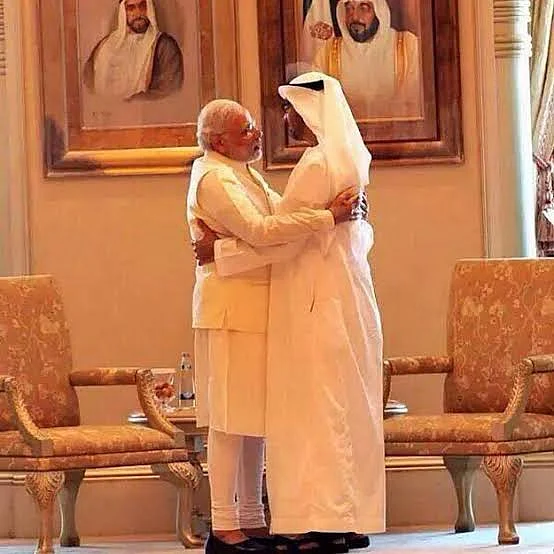Gulf countries will now find it much more difficult to ignore the Indian ‘fringe’
The blowback from the Gulf and other Islamic countries is not an isolated incident. While the rulers would like to have close ties with India, they can no longer ignore popular sentiment either

The diplomatic crisis created by the obnoxious remarks by BJP spokespersons about the Prophet and his wife has forced Indian media, politicians, officials, and most importantly, people to closely examine our relations with a region, where Islam’s holiest sites are located, which is home to almost a fifth of the global population of its followers, and which hosts the largest Indian diaspora, many of them living here for generations.
The Gulf Arab region countries are India’s closes allies in the Islamic world and include Saudi Arabia, the United Arab Emirates, Qatar, Kuwait, Bahrain, and Oman. Millions of Indians live and work in these countries, goods and services worth tens of billions of dollars are exchanged between India and them annually, they are a sizeable market for Bollywood, and everything about India, Indians, and Indianness is celebrated here.
In August 2015, a day before embarking on his maiden visit to the UAE, Narendra Modi had told me at his home in New Delhi: “This is not just the first visit of an Indian Prime Minister in 34 years, but also my first visit to the UAE, a nation I admire.”
Since then, his government has indeed developed economic, social, and cultural ties at all levels. Modi has visited the UAE three times, twice to Saudi Arabia and engaged with the rulers, business communities and Indian expatriates in Kuwait, Qatar, Oman, and Bahrain.
The Islamic countries reciprocated by enhancing the relationship to the strategic level, lowering or removing tariffs on Indian goods, by building oil reserves on Indian soil, by generously granting long-term residency to Indian expatriates among other gestures.
In 2015, Modi became the first visiting head of state to address a public meeting of his countrymen and women in the UAE, a rarity in Gulf countries. In 2018, he laid the foundations of a grand Hindu temple at a large site generously donated by the UAE government.
However, the remarks by Nupur Sharma, Modi’s party colleague, have not only embarrassed the Indian Prime Minister, but also dented India’s image in the Arab world that views India as a land of ideas and opportunities and a nation where linguistic, social, and religious diversities are celebrated and is home to the world’s second largest population of Muslims.
Why did Arab countries, our closest allies in Asia, decide then to publicly express their displeasure by summoning Indian diplomats and by issuing statements of condemnation?
While the Gulf Arab nations rarely respond to domestic events and controversies in India, an attack on the Prophet of Islam and his wife Aisha is a red line. The chorus of protests from the GCC governments followed a strong statement from Ahmed Al Khalili, the Grand Mufti of Oman and a reputed scholar of Islam who described the BJP as an “extremist party” and called upon Muslims to rise as one nation.
Second, the swift action by these governments, it appears, was also to contain the anger and prevent it from spilling over from Arab digital space to workplaces and neighbourhoods after clips of Nupur Sharma were circulated on social media.
These nations host a large population of foreign workers and take extra care to ensure social harmony by discouraging attempts to bring domestic politics or rivalries of their home countries with other nations.
Third, despite a direct assault on the Prophet of Islam by office bearers of the ruling BJP, the Arab countries have carefully worded their statements of condemnation, welcomed Nupur Sharma’s suspension, and avoided causing embarrassment to the Government of India.
The challenge before India’s political and foreign establishment is to prevent a repeat of these incidents; and ensure that individuals aligned with the ruling party do not indulge in slander against symbols of Islam.
Indian diplomats have attributed the remarks to “fringe” elements and are citing the robustness of Indian democracy that allows free exchange of ideas. However, diplomats who spoke to me about this crisis, are aware of the limitations of such efforts in the absence of Government of India’s ability or intent to stop news channels from spreading hate.
The Gulf Arab nations host the largest Indian diaspora; out of the 18 odd million Indians living abroad, around 7 million live and work in GCC countries. This population of Indian expatriates comprises Hindus, Muslims, Christians, Jains, and Sikhs. They are the most powerful ambassadors of their nation and their public conduct and activities on social media contribute to the Arab perception about India. In the past, several Indian nationals, including a Michelin star chef, lost their jobs and were deported from the GCC countries after they made offensive remarks against Islam or Muslims.
A large section of India’s electronic media is seen as a powerful ally of Modi and protecting his image, promoting him as a Hindutva icon and pushing a narrative that has yielded handsome electoral gains for the Prime Minister and his party. But then utterances on television can also dent India’s image.
It will be a colossal mistake to view this diplomatic fallout in isolation. Incidents of the last few years such as verbal and physical attacks on Muslims have been commented upon in social and mainstream media in the Arab world. Today, thanks to the growing ties and the presence of a large diaspora, Arab citizens and government officials follow events closely and understand Indian politics.
(Bobby Naqvi is former editor of Gulf News and a senior journalist based in Dubai)
Follow us on: Facebook, Twitter, Google News, Instagram
Join our official telegram channel (@nationalherald) and stay updated with the latest headlines
